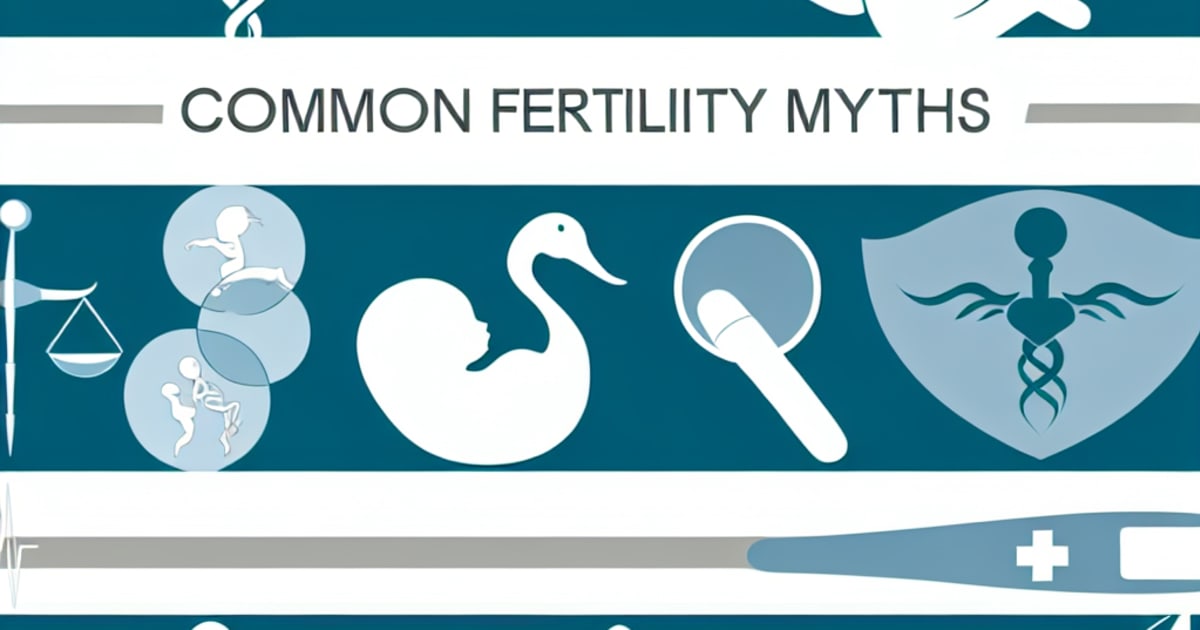
Common Fertility Myths Debunked - Unveiling the Truth
The Journey of Fertility: Debunking Common Myths
In today's society, the topic of fertility is often clouded with misconceptions and myths that can create unnecessary distress for individuals and couples trying to conceive. By debunking some of these common myths, we can provide a clearer understanding of fertility and help those on their journey to parenthood.
Understanding Fertility: The Basics
Before diving into the myths, it's essential to understand the basics of fertility. Fertility refers to a person's ability to reproduce by natural means. It involves various factors, including healthy sperm or eggs, a viable uterus, and the right hormonal balance. Age, lifestyle, and overall health also significantly impact fertility.
Myth 1: Fertility Issues Only Affect Women
One of the most common misconceptions about fertility is that it only affects women. In reality, fertility issues are almost equally divided between men and women. According to the American Pregnancy Association, about one-third of fertility issues are related to women, one-third to men, and the remaining third to a combination of both or unknown causes. Therefore, it's crucial for both partners to undergo testing when fertility problems arise.
Myth 2: Age Doesn't Affect Fertility in Men
While it's true that men can produce sperm well into their old age, it doesn't mean that age doesn't impact their fertility. Studies have shown that as men age, sperm count, and quality decrease, potentially impacting their ability to conceive. In addition, older fathers are more likely to pass on genetic mutations to their offspring, increasing the risk of certain health conditions.
Myth 3: You Can't Get Pregnant During Your Period
Another common myth is that a woman cannot get pregnant during her period. While the chances are relatively low, it's certainly not impossible. Sperm can live inside the female body for up to five days, and if a woman has a short menstrual cycle or long periods, she could be fertile during her period.
Myth 4: Relaxing or Taking a Vacation Will Help You Get Pregnant
It's a popular belief that stress hinders conception and that simply relaxing or taking a vacation can increase your chances of getting pregnant. While chronic stress can potentially impact fertility, it's often not the sole cause of fertility issues. Conception is a complex process that depends on many factors, and reducing stress alone is unlikely to resolve fertility problems.
Myth 5: Frequent Sexual Intercourse Increases the Chances of Conception
While it might seem logical that more sex equals a higher chance of pregnancy, this isn't necessarily the case. Fertility depends on timing. Women are fertile for a short window each month, and intercourse needs to happen within this fertility window for conception to occur. Having sex multiple times a day or every day can actually decrease the amount and quality of sperm, reducing the chances of conception.
In Conclusion: Navigating Fertility with Fact Over Fiction
The journey to conception can often be a rollercoaster of emotions, and fertility myths can complicate the process. By debunking these common misconceptions, we can help individuals and couples navigate their fertility journey with fact over fiction. Always remember, every person's fertility journey is unique, and what works for one might not work for another. When in doubt, always consult with a healthcare or fertility professional.
